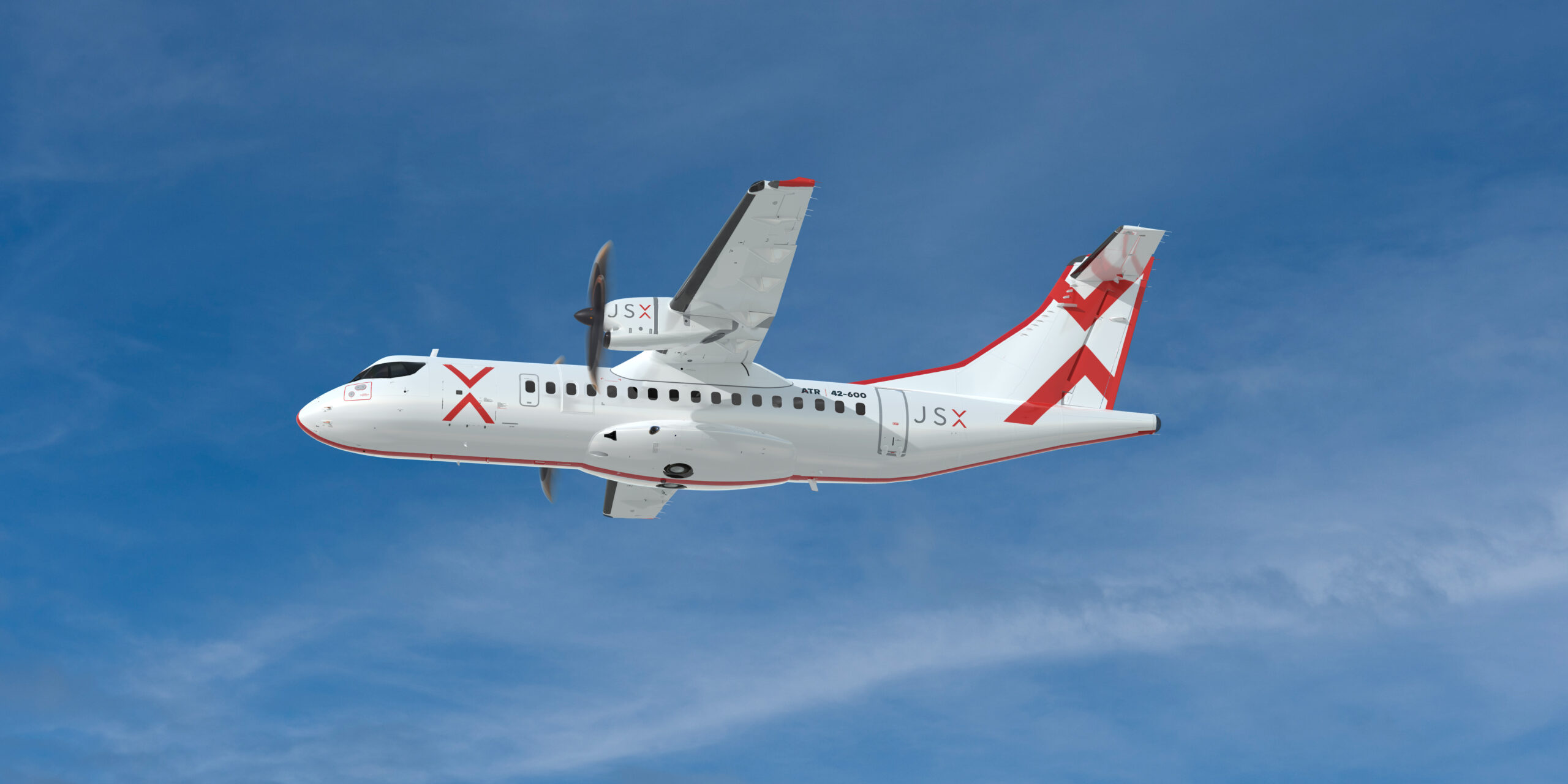American Airlines Appeals to Supreme Court to Revive Blocked JetBlue Alliance
The Northeast Alliance was found to be anti-competitive and disbanded in 2023
by Lauren Smith
March 5, 2025
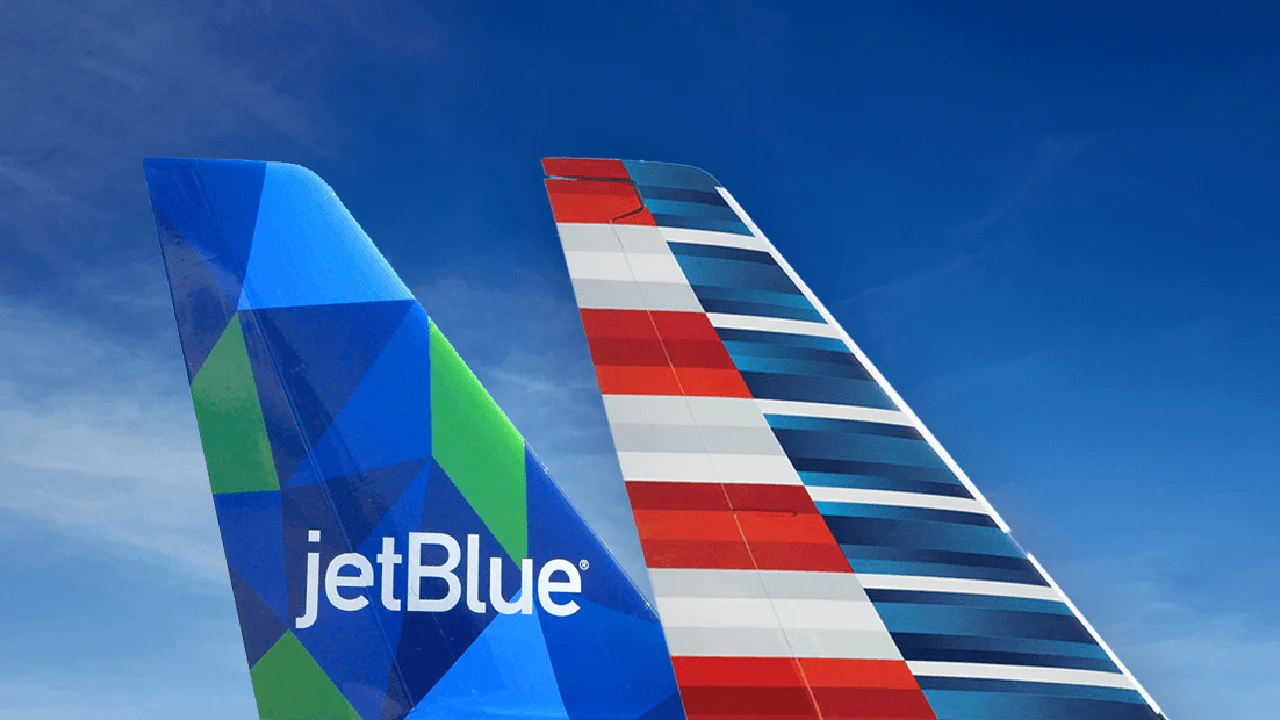
Photo: Courtesy of JetBlue Airways
American Airlines hopes that a conservative-leaning Supreme Court will overturn the ban on its Northeast Alliance with rival JetBlue, nearly two years after it was blocked for being anti-competitive.
The Dallas/Ft. Worth-based carrier has petitioned the country’s highest court to review a November 2024 decision by a Boston-based federal appeals court, which upheld a previous May 2023 ruling that blocked the alliance.
The original ruling found that the coordination between the two carriers “diminishes competition in the domestic market for air travel” and violates the Sherman Antitrust Act.
Codeshares and Coordinated Schedules
American Airlines and JetBlue began partnering in the busy Northeast corridor in 2021. Under the terms of their deal, they synchronized schedules between New York (JFK), LaGuardia (LGA), Newark (EWR), and Boston (BOS).
The airlines also codeshared on key flights in the region, traded take-off and landing permissions at the four airports, and gave members of their AAdvantage and TrueBlue frequent flyer schemes reciprocal loyalty benefits.
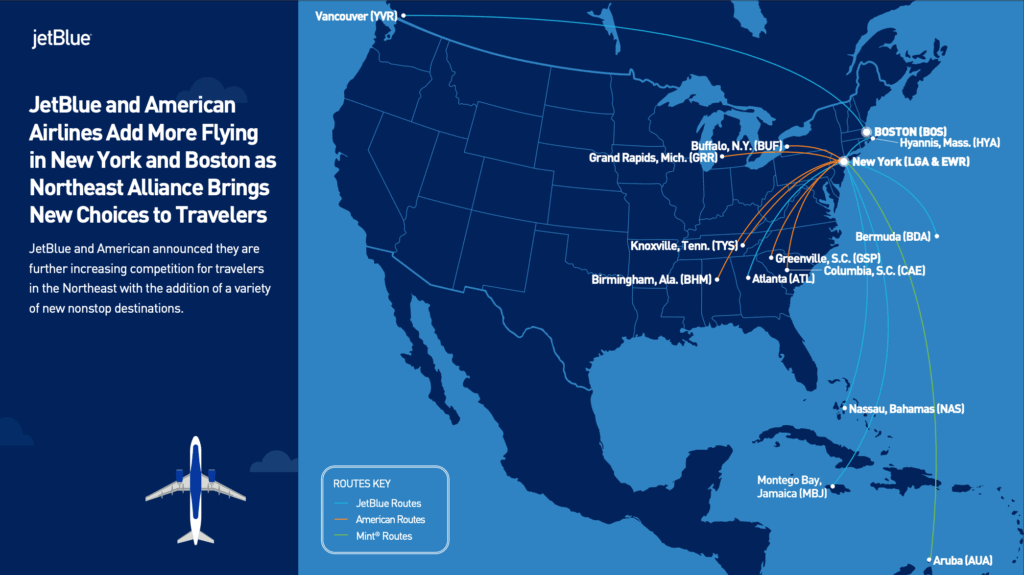
Photo: Courtesy of JetBlue Airways
American and JetBlue argued that the deal allowed them to better compete with United and Delta, which have larger presences in the region.
But the DOJ under previous President Joe Biden and six neighboring U.S. states disagreed and filed a successful lawsuit to block the deal as a violation of antitrust law, arguing it increased fares and reduced consumer choice. Following the ruling, the two airlines disbanded the alliance in July 2023.
More Flights, Seats, Destinations
But American Airlines isn’t ready to give up on the venture and is looking to the Supreme Court to reverse the decision. In its filing, it argued that the alliance “increased market-wide competition among all airlines in the congested Northeast without any price increases.”
The petition cites a previous Supreme Court ruling that found joint ventures can promote competition because they “enable firms to do something more cheaply or better.”
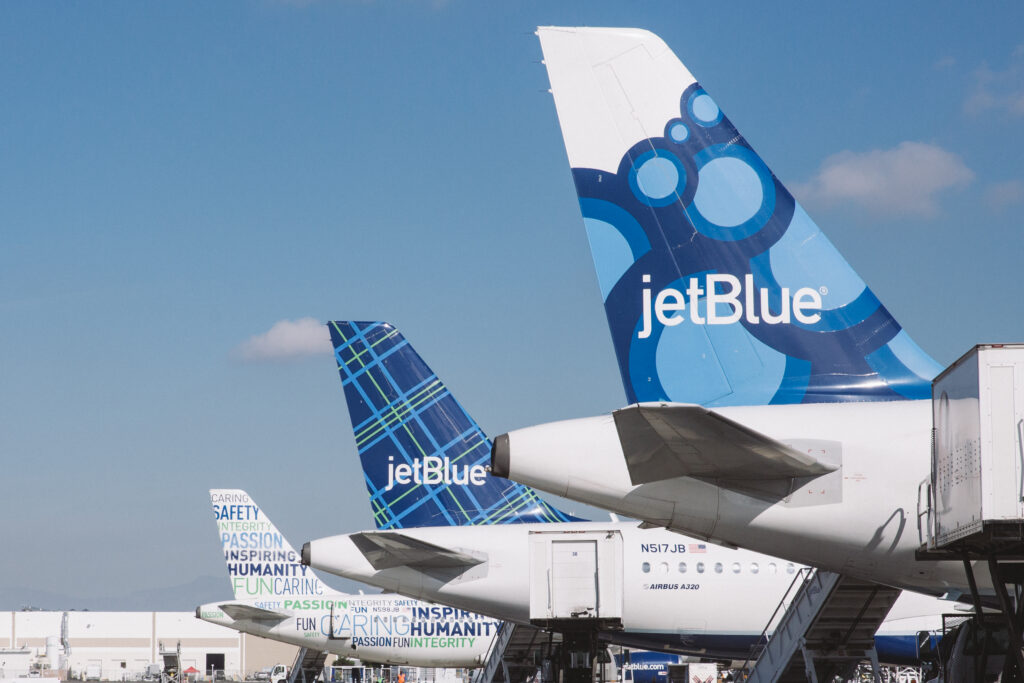
Photo: Courtesy of JetBlue
American said that the joint venture enabled it and JetBlue to offer consumers more flights, destinations, and seats in the region than they might otherwise. The two carriers increased their capacity at the four airports by more than 200 percent, launched around 50 new non-stop routes, and increased frequencies on another 130 routes.
During the twenty months the Northeast Alliance was in effect, ticket prices in the region didn’t increase relative to those on routes elsewhere in the country, the airline argued.
The petition also quotes a rival airline, which said the alliance made “one relevant competitor out of two weak ones.”
“Clear legal error”
American argued that the decision was flawed because it was based on the “small number of routes” in which American or JetBlue services were reduced. The carrier contended that frequencies on those routes fell only because aircraft were redeployed to routes where they could be better used.
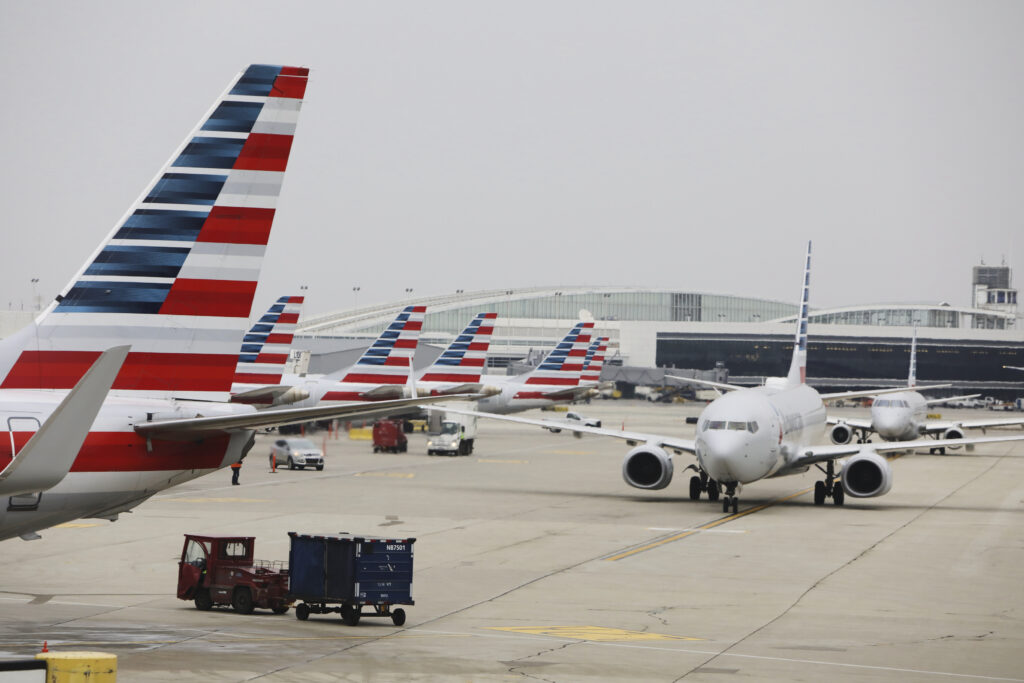
Photo: Courtesy of American Airlines
Reductions in frequency on a few routes don’t amount to an impact on the “market-wide output,” which is the benchmark for the Sherman Antitrust Act, American said.
“This was a clear legal error. Intra-venture reductions in competition (and consequently in the joint venturers’ output) often occur in joint ventures precisely because such collaboration makes the joint venture work in the first place,” the petition states.
It’s unknown if and when the Supreme Court might consider the case.

